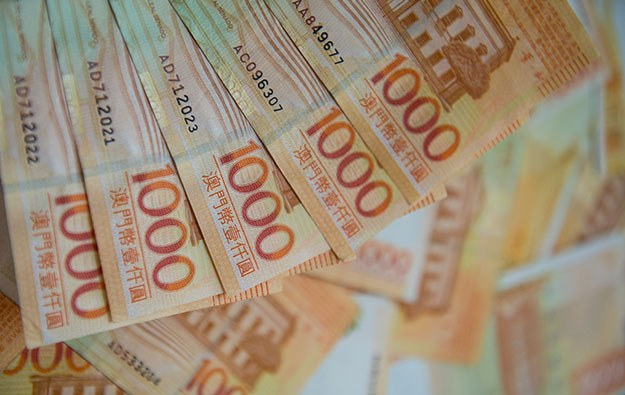Macau 40pct GGR tax in new law, CE can cut up to 5 points
Jun 15, 2022 Newsdesk Latest News, Macau, Top of the deck

An article in the latest draft of Macau’s gaming law amendment bill, published on Wednesday, sets the tax payable on casino gross gaming (GGR) at 40 percent, although the law gives an incumbent Macau chief executive (CE) the discretion to reduce such tax burden by up to five percentage points for “reasons of public interest”, “namely” attracting “customers from foreign countries”.
The latter discretionary power under the new law was mentioned by veteran Macau legislator Chan Chak Mo, on the sidelines of the Legislative Assembly in mid-May, after a closed-doors meeting with government officials. He heads a committee tasked with scrutinising the new law.
Nonetheless several experts on Macau gaming law, that were consulted by GGRAsia on Wednesday, said the latest draft has the potential to increase the total GGR tax burden on operators, because of a change of wording: from “up to” 40 percent under the existing law; to “equal to” 40 percent under the gaming law amendment bill.
The existing law mentions 35 percent as gaming tax, plus “no more than” 2 percent for promotion of cultural, social, economic, educational, scientific, academic and philanthropic causes; and “no more than” 3 percent for urban development, tourism promotion and social security.
The wording of the gaming law amendment bill – which proposes a tax regime that will apply at the time new 10-year concessions are put in place – means the “‘effective’ new tax for future gaming concessionaires will be a total of 40 percent,” said Macau-based lawyer Carlos Lobo, a specialist in Macau gaming law, in an emailed reply to GGRAsia.
The amendment bill mentions 35 percent as gaming tax, plus an “amount equal to” 2 percent for promotion of cultural, social, economic, educational, scientific, academic and philanthropic causes; and an “amount equal to 3 percent” for urban development, tourism promotion and social security.
“I have little doubt that the current amendment to article 22/1, sub-paragraphs 2 and 3, represents an increase in the ’tax’ future gaming operators have to pay,” stated Mr Lobo. “Current operators have to pay 4 percent of ‘contributions’, except for SJM [Holdings Ltd], which has to pay only 3 percent due to their obligations towards dredging the waters in Macau.”
“Future concessionaires shall need to pay 5 percent” for the social contributions, “no longer ‘up to’ 5 percent,” as stated in the existing law, he added.
Though Mr Lobo noted that this 40 percent burden “could be mitigated via the new rule in ‘Article 22/3’” of the gaming law amendment bill, “relating to a possible reduction or exemption of these contributions, to be granted by the Macau chief executive”.
The lawyer added that “how exactly – or when – this mechanism will be implemented,” was yet to be clarified by the government. That is because the criteria for the eventual reduction or exemption of tax for social contributions will be set via a complementary regulation.
António Lobo Vilela, a former senior advisor to the post holder of Secretary for Economy and Finance – i.e., to the official that oversees the gaming industry – told GGRAsia: “In sum, the tax burden” on Macau GGR “is now 40 percent; before it was 39 percent”.
The gaming law amendment mentioned “not up to 2 percent and 3 percent”, but specifically “2 percent and 3 percent,” stated Mr Vilela.
Though he noted a Macau chief executive “can exempt or reduce” the tax burden “for public interest – namely if they cater to patrons from other geographies.”
Members of the Legislative Assembly committee scrutinising the gaming law amendment bill signed off their concluding opinions on Wednesday. The bill is likely to get its second and final reading in the assembly in the course of next week, at the earliest.
Related articles
-
 Macau 1H gaming tax revenue hits...
Macau 1H gaming tax revenue hits...Jul 09, 2024
-
 Macau gaming tax revenue at US$3.7bln...
Macau gaming tax revenue at US$3.7bln...May 10, 2024
More news
-
 Donaco EBITDA up y-o-y to above US$4mln...
Donaco EBITDA up y-o-y to above US$4mln...Jul 26, 2024
-
 HK listed Palasino upgrades Czech...
HK listed Palasino upgrades Czech...Jul 26, 2024
Latest News
Jul 26, 2024
Border-casino operator Donaco International Ltd has achieved a 164.17-percent year-on-year increase in its latest quarterly group earnings before interest, taxation, depreciation and amortisation...Sign up to our FREE Newsletter
 (Click here for more)
(Click here for more)
Pick of the Day
”We’ve got more traction outside of Macau at the moment. But Macau’s going be a bigger focus for us”
David Punter
Regional representative at Konami Australia
Most Popular
 Sheraton brand to exit Londoner Macao, to be Londoner Grand July 25, 2024
Sheraton brand to exit Londoner Macao, to be Londoner Grand July 25, 2024  Macau regulator probes unlicensed gaming agents July 24, 2024
Macau regulator probes unlicensed gaming agents July 24, 2024  Philippines gives 20k aliens in POGOs 60 days to leave July 25, 2024
Philippines gives 20k aliens in POGOs 60 days to leave July 25, 2024  Philippines-listed DigiPlus says not affected by POGO ban July 24, 2024
Philippines-listed DigiPlus says not affected by POGO ban July 24, 2024  Sands China 2Q EBITDA down q-o-q amid low hold, renovation July 25, 2024
Sands China 2Q EBITDA down q-o-q amid low hold, renovation July 25, 2024






